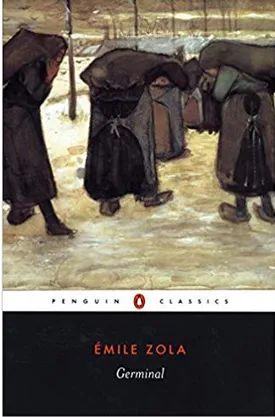Émile Zola
Émile Zola (1840 - 1902) was a French novelist, playwright, and essayist who is best known for his works of naturalism, such as the hugely successful 20-volume series Les Rougon-Macquart. These works were part of a wider naturalist movement in the late 19th century, and their realistic portrayals of the everyday lives of their characters led to them being highly influential to the development of later authors such as Marcel Proust.
Zola was born in Paris on April 2nd, 1840, to a father who was from Provence, and a mother from Lombardy. He was raised in a relatively prosperous household, and went to school in Paris, where he demonstrated an early talent for writing. After leaving school he took on various jobs, including salesman, copywriter, and accountant, before eventually becoming the editor of a small Paris-based journal.
In 1862 he wrote his first novel, Contes a Ninon, which was not well received; however, he soon found success with his novel Thérèse Raquin, published in 1867. This gripping psychological novel of domestic jealousy, crime and retribution established him as a master of the naturalist novel and went on to become his most popular work.
Following this success Zola worked prolifically, concentrating largely on the themes of naturalism, which he adopted as a passion from 1865. This involved a focus on writing about the ways that environment, heredity and social conditions can influence human behavior, a viewpoint he felt was in direct opposition to the idealistic literary works of the era. His 20-volume series Les Rougon-Macquart charts the lives of two branches of the same family through several generations, presenting a wide-ranging exploration into the effect of social conditions on the characters' lives.
In his later works, such as Germinal (1885) and L'Argent (1891), Zola began to develop themes around political beliefs and critiques of capitalism, which often put him at odds with his publishers and the public. He also continued to use social realism, producing novels such as La Terre (1887) and La Bête Humaine (1890), which are now considered classics of French literature.
Zola's works were received with both admiration and controversy. His often daring topics and controversial views led to a famous libel case against him in 1898. The case, in which Zola was wrongly accused of committing a crime, highlighted the often-contentious relationship between the novelist and the French Government of the day. Despite this, his works continue to hold a significant place in French and world literature and many of his masterpieces have been adapted into stage plays and film.
Zola's writing career lasted almost 40 years, from 1862 until his death in 1902. During this time, he wrote some of the most acclaimed works of fiction in all of French literature, ranging from psychological thrillers to polemics on the injustices of the capitalist system. His legacy is seen in the works of many modern authors, including the likes of Marcel Proust who, drawing inspiration from Zola’s intense realism, went on to become one of the greatest writers of all time.

